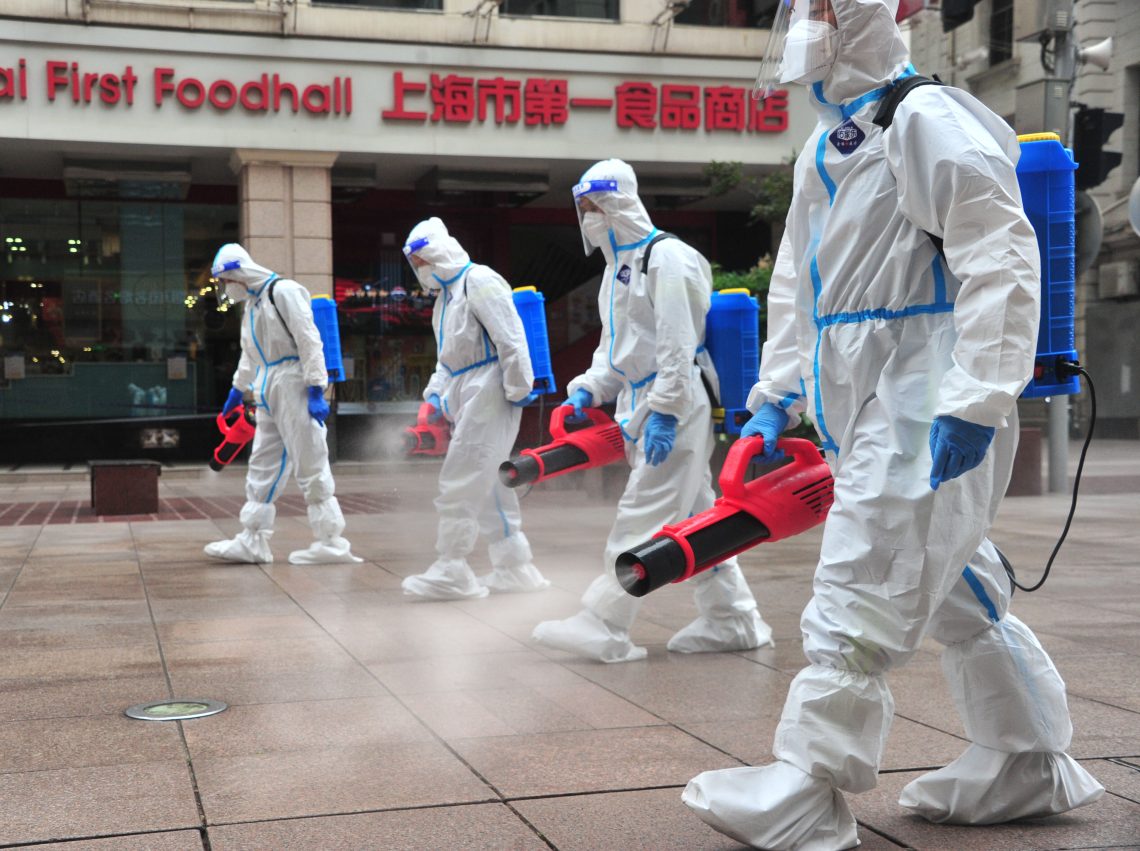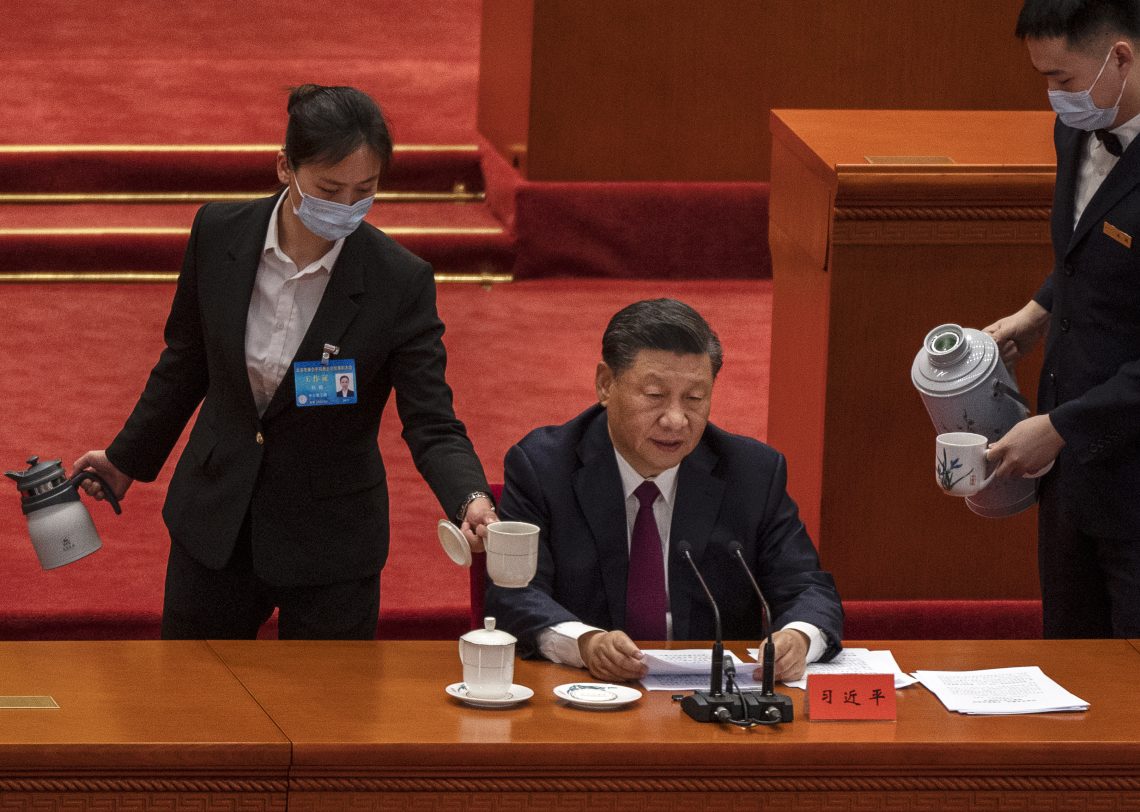China’s zero-Covid quandary
Even though Beijing has made its zero-Covid policy a core element of its anti-Western discourse, it will eventually have to find a long-term alternative.

In a nutshell
- CCP officials extoll ‘zero Covid’ as the only viable approach
- Harsh lockdowns have put the economy at risk
- China will have to find a strategy to coexist with the virus
The March 2022 lockdown in Shanghai has caused more serious concerns – both in China and abroad – than that of Wuhan in 2020. The fate of many enterprises is at stake, and the sustainability of the global supply chain has come under question. While the city reopened on June 1, the measures taken during the two previous months shed light on how the authorities in Beijing may choose to handle future outbreaks.
Political calculations
Since coming to power, President Xi Jinping has been consistently endeavoring to present himself as an omniscient and omnipotent leader. The most obvious case was the 2020 Wuhan lockdown. The brutal measures imposed allowed the Chinese Communist Party (CCP) to claim that China was the only country in the world that had successfully implemented a zero-Covid policy. President Xi declared on September 8, 2020, that “the fight against Covid has achieved significant strategic results, fully demonstrating the remarkable advantages of the leadership of the Chinese Communist Party and China’s socialist system.” Government officials attributed the achievement to Mr. Xi’s skillful “personal command and deployment.”
After the lockdown in Wuhan, the virus gradually spread to the rest of the world, leading to billions of confirmed cases and millions of deaths. Chinese officials depicted the more moderate Western restrictions as irresponsibility typical of capitalist societies. Meanwhile, China’s zero-Covid strategy was presented as a socialist approach that respects human life.
What took place during the lockdown was a far cry from what the CCP wanted to achieve.
This distinction boosted confidence in the CCP and reinforced Mr. Xi’s position as supreme leader of the nation.
Against such a backdrop, Western-made vaccines were greeted with suspicion. The Chinese media have been actively reporting on their health risks while refraining from criticizing the lack of transparency or lower effectiveness of Chinese vaccines. Once the Wuhan lockdown was lifted, up until the Winter Olympic Games, CCP top brass became complacent, which allowed for the spread of the Omicron variant in China.
Authoritarian blind spot
Today’s zero-Covid policy is based on the so-called Wuhan model, which does not differentiate between virus variants. The authorities did not inform the public that Omicron is milder and more often asymptomatic – although more contagious. Based on the experience of many countries, asymptomatic patients can usually be treated at home. But in China, it is taboo to talk about this course of action.
Wuhan is very different from Shanghai, which has a much larger proportion of elderly inhabitants. A third of Shanghai residents are over 60 years old. The city is also much more liberal than Wuhan, with a large middle-class population concerned with human rights and freedom. Shanghai’s economic output in 2021 was over three times that of Wuhan.
The Wuhan model was created at a time when no vaccines were available, but now there is reliable data about immunization. China has been boasting about the quality of its own vaccines, even though numerous studies have shown that they are less effective than their Western equivalent. Yet the Chinese authorities are disregarding this fact, sticking to President Xi’s “rising East, declining West” theory.
The most likely scenario is an incremental change of the zero-Covid policy, which would allow President Xi not to lose face.
In short, authoritarianism has created a blind spot in Chinese leadership that has led to a rigid adherence to the Wuhan model. The central government adamantly maintains that a “dynamic zero-Covid” approach is the silver bullet to manage the pandemic.
China’s credo in combating Covid has always allegedly been to put “people first.” In reality, inhumane paramilitary measures have been taken, and Shanghai residents even went hungry. The government saved patients suffering from the Omicron variant, but there were many deaths from other illnesses.
There are about 14,000 people needing dialysis in Shanghai, some 400,000 to 500,000 cancer patients and 5,900,000 cardiovascular patients. According to the National Center for Disease Control and Prevention, these patients’ mortality rates increased on average by 20 percent under stringent lockdown conditions. Many social media users revealed tragic stories of people needing treatment and being turned away by hospitals.
A study conducted by researchers at the University of Hong Kong in late March this year concluded that two doses of the Huarui vaccine did not perform as well as BioNTech, especially among the elderly. Still, the CCP chose not to vaccinate older citizens with BioNTech.

Trapped economy
In the first three weeks of April, freight volumes in the Shanghai metropolitan area plummeted by 81 percent year-over-year. Nationwide, freight volumes fell 15 percent year-over-year in April. Investors began to lose confidence in China’s financial markets, with the Shanghai Stock Exchange Index down 15 percent since the beginning of the year. Shanghai lost 27.7 billion renminbi (approximately $4 million) during the months-long blockade to combat the epidemic.
In response, both the European Union Chamber of Commerce in China and the United States Chamber of Commerce in China have expressed their concerns about the Shanghai closure to Chinese officials. But in vain. Liang Wannian, head of the National Health Commission’s pandemic expert group, defended the policy, saying it was the pandemic itself that led to the economic downturn.
The CCP is not unconcerned about the economy, as Xi Jinping demanded that this year’s gross domestic product (GDP) growth rate exceed that of the U.S. At the April 29 meeting of the CCP Political Bureau, officials pointed out that China’s “economic development environment has increased in complexity, severity and uncertainty, and new challenges are facing stable growth, stable employment and stable prices.”
The zero-Covid policy has been given dogma status by the CCP, which is now tied up by this narrative.
What took place during the lockdown was a far cry from what the CCP wanted to achieve. Foreign experts fled the country and the outflow of capital, and the loss of foreign investment amounted to $17.5 billion in March. The European Union Chamber of Commerce in China released a report in May saying that 23 percent of the companies surveyed are considering shifting their existing or planned investments to other markets – the highest level over the last 10 years. Some 344 million people in China, or a quarter of the country’s population, are currently under some form of restriction. Official data shows that consumption in China fell 3.5 percent in March, with restaurants down 16 percent. Neighboring Vietnam is benefiting from Beijing’s zero-Covid policy and exports are on the fast track, with data showing a 14.8 percent year-over-year increase in March.
The Chinese government is implementing stimulus measures to rescue the economy. The Shanghai Municipal Government has now issued the Shanghai Action Plan for Accelerating Economic Recovery and Revitalization, which consists of 50 policy measures in eight areas.
If Beijing sticks to its zero-Covid policy without adequate economic tools to compensate, it is conceivable that GDP growth will be below 4 percent this year.
Scenarios
The most likely scenario is an incremental change of the zero-Covid policy, which would allow President Xi not to lose face.
Even in China, many experts have already raised objections to the zero-Covid policy. On February 28, Zeng Guang, a member of the high-level expert group of China’s National Health Commission and chief epidemiologist at the Chinese Center for Disease Control and Prevention, wrote that China’s “dynamic zero” will not remain unchanged forever, and that in the near future, a road map for coexistence with the virus will be revealed. However, the tweet was soon deleted by the authorities.
All this is because the zero-Covid policy has been given dogma status by the CCP, which is now tied up by this narrative. Still, Beijing knows that a course correction must take place. At a Politburo meeting in May, while emphasizing the unwavering adherence to the existing strategy, a new view was put forward that “the pandemic should be dealt with according to the new characteristics of the virus’ mutation and spread.” It is conceivable that the import of quality vaccines from abroad will no longer be hindered after the 20th Congress.
The current strategy will be revised sooner or later, but only if Mr. Xi’s image is not tarnished, and his third term is ensured. Top officials of the Shanghai municipal government are unlikely to be punished for the spread of Omicron because they were handpicked by Mr. Xi himself. During the Wuhan outbreak, however, some 630 government officials were removed from their position within a month of the first lockdown, including Hubei Party Secretary Jiang Chaoliang.
Just as Russian President Vladimir Putin would never admit that invading Ukraine was a mistake, his Chinese counterpart will never publicly admit the failure of his current zero-Covid policy. But he will eventually relax it to save China’s economy.







